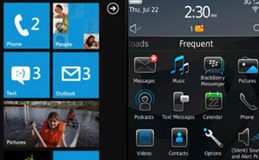Blackberry’s ‘great’ 10.2 OS updated illustrates Microsoft’s wisdom

One thing Blackberry fans however remain proud of is their operating system and the updates it has received, with the refrain often being that the next software update will be the one that rescues the company from certain doom.
And looking at the features of the software update it is easy to see why they are optimistic.
| Blackberry 10.1 | Blackberry 10.2 |
|
|
I am sure even our readers will agree some of these features, such as USB Host, HDR mode, Miracast support, Geofencing and Android app compatibility, all added in less than a year, constitute pretty significant updates.
Over the same period Windows Phone added:
| GDR1 | GDR2 | GDR3 |
|
|
|
In comparison the list is much less impressive. We have however heard members of the Windows Phone developer team say that the less glamorous, under the hood changes is exactly what is responsible for the surge in Windows Phone adoption, with Joe Belfiore saying:
“The work we are doing is valuable, and a lot of people aren’t aware of it,”, noting that much of the work was directed at the foundation of Windows Phone, to add support for technology which will allow the OS to expand its market share, and therefore often only show up in new devices.
While Microsoft worked at making sure Windows Phone 8 could run in 512 MB RAM and on 800 Mhz processors, Blackberry’s engineers were adding Micracast and USB Host support and doing nothing about the heavy OS, which requires 2 GB RAM and 720P screens to work. This allowed Microsoft to create what turned out to be hero devices like the Nokia Lumia 520, while Blackberry created the Blackberry Z30, which would be lucky to sell 1 million units.
While Microsoft, it seems very wisely now, addressed the expanding low-end, Blackberry was trying to fight the feature fight with iOS and Android, and losing badly.

I am sure this will come eventually, but it is of course important to prioritize, and some features increase hardware requirements, and each additional feature adds to the time needed to test and certify the OS. As Belfiore mentioned, at the moment Windows Phone’s greatest need is to expand its market share and get greater support by developers, and adding UBS Host and Miracast does very little to achieve this.
Do our readers agree that Microsoft is being a responsible steward of Windows Phone development? Let us know below.
Read our disclosure page to find out how can you help MSPoweruser sustain the editorial team Read more




User forum
0 messages